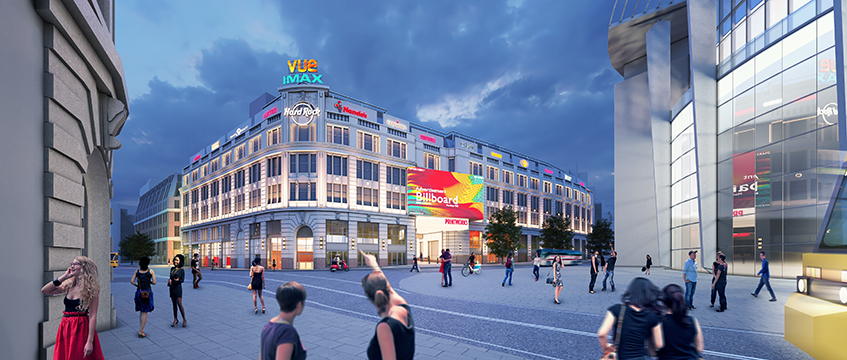The co-founder of regeneration specialist Urban Splash has urged developers to prioritise arts and culture to help drive Manchester’s “urban revolution”.
Tom Bloxham, who also chairs the Manchester International Festival, says that creating new arts and culture centres in the city is key to supporting the creative sectors. Developments like Factory, which will host the festival once complete, can set an example, he adds.
“Placemaking is at the core of what we do,” Bloxham says. “As we create large scale neighbourhoods, we’re curating great amenities around them – from bars, cafes and restaurants, to museums and art hubs.”
Cultural reputation
Manchester’s nightlife, arts and culture scene has evolved far beyond the heyday of Oasis and the riotous anecdotes of those who frequented the notorious Haçienda.
According to research from the Arts Council England, the sector generated £2.7bn in the North of England in 2016, with Greater Manchester accounting for about £430m of that total.
But this year saw the city’s scene come to a standstill. The spread of coronavirus meant Manchester’s museums, galleries, theatres and music venues shut their doors for business, and festivals were canned in a bid to contain the virus.
The government’s £1.57bn emergency package to help support the sector nationally, announced earlier this week, has shone a spotlight on the role that the industry has to play as owners of venues and designers of space, according to industry leaders.
Chris Oglesby, chief executive of Bruntwood and a board member of the Manchester International Festival, says that property companies have a “responsibility to get Manchester working again”, adding that supporting the creative industries is crucial.
“There is a danger that we step back 10-15 years in the regeneration of our cities, and see the fabric of the city which makes it so attractive to talent disappear,” he says.
To ensure this does not happen, real estate leaders want to see their industry, the built environment and the concept of placemaking prioritised.
Catalysing action
John Hughes, managing director of property company Ask Real Estate, said his company recognised that culture could be a “positive catalyst” for raising the profile of its First Street development. Home, a theatre, arts, film and music hub, proved him right, he says.
“We see Home as our anchor,” Hughes adds. “Just like shopping centres used to want a John Lewis, we saw Home as our footfall generator that would help build a destination and a place.”
As well as drawing inspiration from the success of such ventures, property bosses believes that their industry can learn new lessons from lockdown.
The public’s renewed interest and need for outdoor spaces in particular can provide property companies an opportunity to integrate arts and culture into the public realm, says 5Plus Architects director Phil Doyle. “Those who know how to curate a space for people will be ahead of the game.”
To send feedback, e-mail lucy.alderson@egi.co.uk or tweet @LucyAJourno or @estatesgazette











